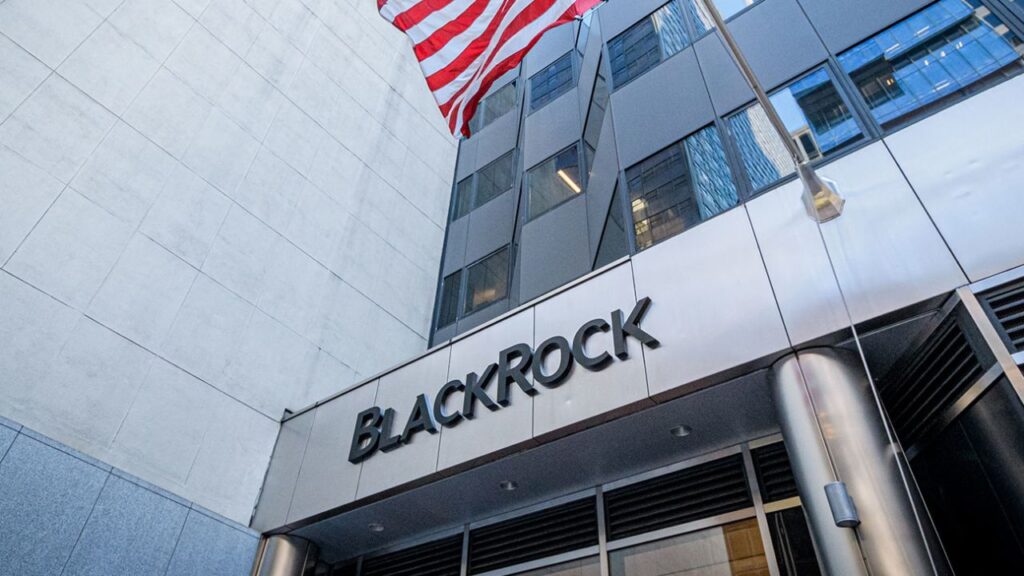The Chicago Mercantile Exchange (CME) Group revealed its intention to launch Ether/Bitcoin Ratio futures on June 29.
The introduction of these futures contracts is scheduled for July 31, pending regulatory approval.
The settlement of Ether/Bitcoin Ratio futures will be in cash, determined by the final settlement price of CME Group’s Ether (ETH) futures divided by the final settlement price of CME Group’s Bitcoin (BTC) futures.
Additionally, this new contract will follow the same listing cycle as CME Group’s Bitcoin and Ether futures contracts.
Giovanni Vicioso, CME Group’s global head of cryptocurrency products, highlighted the potential for relative value trading opportunities between Ether and Bitcoin.
While these assets have traditionally exhibited a strong correlation, their market dynamics may now differ, enabling investors to capitalize on their performance variances. Vicioso stated:
“By introducing Ether/Bitcoin Ratio futures, investors can gain exposure to both ether and bitcoin in a single trade without taking a directional view.
This new contract will facilitate opportunities for a wide range of clients seeking to hedge positions or execute various trading strategies, all in an efficient and cost-effective manner.”
CME Group initially entered the cryptocurrency market in December 2017 by launching the first Bitcoin futures contract.
In February 2021, they expanded their offerings by introducing an Ether futures contract. Recognizing the growing demand for cryptocurrency investment opportunities, CME Group further broadened its product range in 2022 with the introduction of micro BTC and ETH futures contracts, providing traders with additional options to engage in these digital assets.
On April 17, CME Group unveiled plans to enhance its cryptocurrency options by introducing new options for standard and micro-sized Bitcoin and Ether contracts.
These contracts were expected to be available from May 22, pending regulatory review.
This expansion included daily expiries from Monday to Friday, allowing traders to better manage short-term price risks associated with Bitcoin and Ether.
The aim was to provide market participants with increased precision and flexibility in managing the short-term price volatility of these digital assets.
Explore The Latest Crypto News Today
Maple Finance, a Web3 lending platform, has unveiled the launch of its direct lending program, aimed at replacing the services previously offered by now-defunct lenders such as Celsius and BlockFi.
The platform’s development team shared a fact sheet on June 28, highlighting their intention to roll out the first lending pool in July.
Maple Finance serves as a blockchain institutional capital marketplace, facilitating loans for Web3 businesses seeking funds for product launches and expansions.
Previously, the platform relied on credit professionals known as “pool delegates” to provide capital for these loans.
Notably, Celsius utilized Maple to establish a Wrapped Ether (WETH) lending pool in February 2022.
However, during the bear market of 2022, several prominent Web3 lenders faced bankruptcy. Celsius ceased operations in July, followed by BlockFi in November, and Genesis in January.
In response, Maple Finance’s team announced on June 28 that they would step into the role of a lender on the platform in certain cases.
Leveraging their credit underwriting expertise, they will source capital from institutional allocators to support creditworthy borrowers.
This means that individuals who are unable to secure loans from other providers may have the opportunity to obtain them through Maple’s new program, Maple Direct.
According to the team, this program is necessary due to the exit of major Web3 lenders from the space, with traditional lenders lacking the required focus and expertise to underwrite for innovative Web3 technology firms.
The first direct lending pool will focus on infrastructure, asset management, and liquidity providers. Capital allocators, including Crypto Funds, DAOs, VCs, HNWI, Yield Aggregators, and Family Offices, have been invited to participate in the program and earn yield on their investments.
The announcement emphasized that Maple will continue expanding its existing services, indicating that Maple Direct will not replace the current platform, which features competing lenders.
In the past, Maple Finance faced challenges due to the bankruptcies of FTX and Alameda Research in November.
One borrower, Aurus Global, experienced payment issues as a result, and Maple severed ties with Orthogonal Trading over perceived misrepresentations.
However, the platform quickly rebounded, releasing version 2.0 of its software in December.
With its direct lending program, Maple Finance aims to fill the void left by the collapse of major Web3 lenders and provide creditworthy borrowers with the necessary capital for their projects.
Other Stories:
Drop Wireless, NextEPC To Reshape The Future Of Cellular Connectivity And Bridge The Digital Divide
Sale of FTX’s $500 Million Stake In AI Startup Paused, Hindering Efforts To Fill $2 Billion Gap
Bitcoin (BTC) Miners Experience Record Surge in Revenue Sent to Exchanges
Italy’s top banking authority is advocating for a robust and risk-based regulatory framework for stablecoins in order to prevent a worst-case scenario of a “run” on stablecoins.
The central bank’s latest report, titled “Markets, Infrastructures and Payment Systems” for June, emphasizes the need for regulators to apply financial conduct standards to stablecoin issuers.
The report highlights the significant consumer harm caused by the rise of cryptocurrencies and the boom and bust cycles experienced in an unregulated environment.
The Italian bank considers stablecoin issuers to be a priority for regulatory attention due to their close connection to decentralized finance (DeFi).
It asserts that implementing a strong and risk-based regulation of stablecoins is crucial to reduce the fragility of the DeFi ecosystem, given the asset class’s prominent role in decentralized finance.
Furthermore, the report states that stablecoins have not proven to be stable at all, citing the collapse of Terra’s algorithmic stablecoin, TerraClassicUSD (USTC), in May 2022.
The bank argues that the industry needs to dispel the “decentralization illusion” by recognizing that many decentralized protocols are controlled by core stakeholders who often benefit disproportionately.
The Italian banking authority suggests that such projects should be required to operate within traditional, accountable business structures before participating in the regulated financial sector.
However, the report clarifies that not all crypto assets or activities should be subject to financial services regulation.
It proposes that regulation should primarily focus on those crypto assets that serve customers’ financial needs through payment or investment functions.
In addition to financial applications, the report acknowledges the non-financial use cases enabled by blockchain technology, including decentralized identification, real estate, supply chain management, voting, and carbon credits.
Italy’s central bank also emphasizes the importance of international cooperation and the establishment of an international regulatory framework.
Since the technology operates beyond national borders, a coordinated effort is necessary to effectively regulate the crypto industry.
In conclusion, Italy’s top banking authority calls for a robust and risk-based regulatory approach to stablecoins, highlighting the need to prevent “runs” on stablecoin issuers.
It emphasizes the connection between stablecoins and DeFi and advocates for synchronization in policy interventions.
The report also emphasizes the importance of dispelling the illusion of decentralization and suggests international cooperation for the establishment of a regulatory framework.
Other Stories:
Sale of FTX’s $500 Million Stake In AI Startup Paused, Hindering Efforts To Fill $2 Billion Gap
Bitcoin (BTC) Miners Experience Record Surge in Revenue Sent to Exchanges
Drop Wireless, NextEPC To Reshape The Future Of Cellular Connectivity And Bridge The Digital Divide
The Sui network and its native SUI token have faced allegations of unlocking and “dumping” SUI staking rewards on Binance, but the team behind the project has vehemently denied these claims.
In a series of tweets on June 27, the Sui Foundation refuted the accusations and stated that no staking rewards or other tokens from locked or non-circulating staked SUI were sold on Binance or any other platform.
The foundation emphasized that all insider token allocations adhere to the lock-up periods and transfer restrictions set forth in their contracts.
Sui operates as a decentralized proof-of-stake blockchain, allowing users to stake their SUI tokens in exchange for more SUI through the proof-of-stake mechanism.
Unlike some other platforms, Sui does not impose a minimum staking period.
The foundation’s denial came in response to claims made by a pseudonymous crypto commentator known as DeFiSquared on Twitter.
DeFiSquared alleged that the Sui Foundation had been transferring staking rewards from locked and non-circulating SUI to Binance without any restrictions.
While Sui argued that the transactions were subject to contractual lock-ups, DeFiSquared argued that the SUI tokens could be unlocked without limitations.
DeFiSquared further claimed that the Sui Foundation’s wallet address, “0x341f,” transferred 3.125 million SUI tokens in staking rewards to three separate addresses, which eventually ended up on Binance after multiple transfers.
They speculated that this process was done to obscure the selling or potentially distribute the funds among team members.
The commentator also raised concerns about SUI’s sell pressure and alleged that the foundation was inflating the token supply by approximately 20% per month for non-foundation token holders.
Sui’s blockchain aims to provide users with high transaction throughput at low fees, as outlined by Mysten Labs, the creators of the Sui Foundation.
At the time of writing, the SUI token has a market capitalization of $427.7 million, with approximately 604 million tokens in circulation.
Its current trading price is $0.70, reflecting a 2.4% decline in the past 24 hours.
The Sui Foundation has announced its intention to release a detailed projection of the token release schedule soon.
According to the tokenomics dashboard Token Unlocks, the next unlock of 61 million tokens ($43 million) is slated for June 3.
Other Stories:
Bspin Review – Here’s Why You Shouldn’t Gamble With This Bitcoin Casino
Japan Grants Tax Exemption on Unrealized Crypto Gains for Token Issuers
HSBC Launches Cryptocurrency Services, Offering Bitcoin ETFs to Customers
Global investment firm BlackRock, known for managing $10 trillion in assets, has emphasized the significance of artificial intelligence (AI) in its mid-year outlook report.
The company sees AI as a “mega force” that could generate substantial returns for investors, particularly in today’s “unusual” market conditions.
BlackRock’s report highlights the increasing concentration of gains in the S&P 500, with only a few tech stocks driving the index.
The firm believes that investing in AI presents an opportunity to capitalize on this concentration. Despite challenging macroeconomic conditions, BlackRock’s investment team views AI as a major driver of returns.
The report identifies automation as the most apparent benefit of AI. While acknowledging the increased risk of automation for white-collar jobs, BlackRock suggests that the resulting cost savings could significantly enhance profit margins, especially for companies with high staffing costs and tasks that are easily automated.
Additionally, the firm recognizes the potential of AI-powered tools in leveraging proprietary data to create innovative models.
BlackRock also points out several key drivers of growth in the coming decade, including the global shift towards low-carbon economies, aging populations, and the rapidly evolving financial system.
The firm’s perspective on AI aligns with other voices in the investment industry. Matt Huang, CEO of Paradigm, a crypto investment firm, emphasized the compelling developments in the AI field and their significance.
However, not all commentators share the same bullish outlook on AI investments. Macro-finance commentator Financelot highlights that the recent AI boom, exemplified by the soaring shares of GPU manufacturer Nvidia, is largely driven by demand for AI-focused computing chips. He suggests that potential U.S. export restrictions on these chips could negatively impact the share prices of AI-related companies.
While BlackRock has shown enthusiasm for AI, recent developments have also seen the company turning its attention to Bitcoin.
The firm has submitted an application to the Securities and Exchange Commission for a spot Bitcoin Exchange Traded Fund (ETF), aiming to be the first to receive regulatory approval for such a product. Bloomberg analysts estimate BlackRock’s chances of approval at 50%.
In summary, BlackRock identifies AI as a powerful force that can drive significant returns for investors.
The firm sees automation, data leverage, and several macroeconomic trends as key factors contributing to AI’s growth potential.
However, there are differing opinions regarding the long-term sustainability of the AI boom, with concerns over the dependence on AI-focused computing chips.
BlackRock’s recent interest in Bitcoin further demonstrates its adaptability to emerging investment opportunities.
Other Stories:
Bitcoin (BTC) Miners Experience Record Surge in Revenue Sent to Exchanges
SYS Labs Announces Launch of Rollux EVM Layer-2 Solution
Sale of FTX’s $500 Million Stake In AI Startup Paused, Hindering Efforts To Fill $2 Billion Gap
According to Michael Shaulov, CEO and co-founder of Fireblocks, an approved BlackRock spot Bitcoin exchange-traded fund (ETF) will bring in new institutional money to Bitcoin, but it will be the retail investors who will ultimately drive significant price surges.
Shaulov made these observations during the Australian Blockchain Week, highlighting that institutional involvement in crypto may not necessarily lead to skyrocketing prices.
Shaulov pointed out that even during the mid-2020 period when there were massive inflows of institutional money, the prices didn’t see significant appreciation until retail investors fervently embraced crypto assets later in the year.
The institutions were acquiring Bitcoin slowly and utilizing algorithms that wouldn’t drive up the market.
On the other hand, retail investors, who participate in a less sophisticated manner, were responsible for dramatic price movements, with 50% increases attributed to them.
However, Shaulov acknowledged that the finite supply of Bitcoin meant that any large-scale accumulation of the cryptocurrency would ultimately impact its price.
He believed it would be easier for institutions currently not participating in the market to add Bitcoin to their allocation due to its unique properties.
Shaulov also discussed the various narratives surrounding Bitcoin among institutional investors.
He mentioned that the narrative surrounding Bitcoin is still unfolding for these institutions. Is it a hedge against inflation? Is it a public reserve currency? Is it a hedge against government financial misdealings? Shaulov personally views Bitcoin as the “ultimate insurance asset.”
He emphasized that Bitcoin possesses properties that make it valuable in times of crisis.
It is disconnected from governments, digitally native, and easily transferable.
Shaulov concluded by stating that the specific value of Bitcoin at any given point, whether it’s $15,000, $20,000, or $60,000, is not as crucial as having enough of it to survive challenging periods.
In his opinion, Bitcoin serves as a reliable asset in times of uncertainty and can provide a safeguard against adverse economic conditions.
Other Stories:
Bspin Review – Here’s Why You Shouldn’t Gamble With This Bitcoin Casino
HSBC Launches Cryptocurrency Services, Offering Bitcoin ETFs to Customers
Japan Grants Tax Exemption on Unrealized Crypto Gains for Token Issuers
The Swiss National Bank (SNB) has revealed its plans to launch a pilot project for a wholesale central bank digital currency (wCBDC), as reported recently.
According to the SNB’s chair, Thomas Jordan, the project will commence in the near future. The wCBDC will be issued on the Swiss SIX digital exchange and will run for a limited duration.
Notably, the SIX Group operates Switzerland’s largest stock exchange.
Jordan emphasized during the Point Zero Forum in Zurich on June 26 that this initiative is not merely an experiment but an opportunity to test real transactions with market participants, as the wCBDC will hold the same value as bank reserves.
Last year, SNB governing board member Thomas Moser stated that CBDCs could integrate well with decentralized finance.
As part of Project Helvetia, the SNB previously incorporated a wCBDC into the back-office systems of five banks after successfully completing a proof of concept.
This current stance differs from the opinion expressed by SNB chief economist Carlos Lenz a year earlier, who had deemed blockchain unsuitable for CBDC and stated that Switzerland had no intention of issuing one.
Regarding retail CBDC, Thomas mentioned that caution is exercised at present, but he did not rule out the possibility of its introduction in the future.
Another SNB governing board member, Andréa Maechler, spoke at a separate event during this year’s Point Zero Forum and mentioned that the central bank does not anticipate the replacement of cash within the country.
Maechler had stated last year that SNB officials believed the risks associated with a retail CBDC outweighed the potential benefits.
In summary, the SNB’s announcement of the wCBDC pilot project on the Swiss SIX digital exchange marks a significant step towards exploring the potential of central bank digital currencies.
While the SNB remains cautious about retail CBDCs, this move showcases their commitment to innovation and testing real-world transactions with market participants.
Other Stories:
FATF Urges Global Adoption of Crypto ‘Travel Rule’ Amid Rising Financial Crime Risks
Bitcoin ETF Fever Returns: ProShares’ BITO Sees Largest Inflow in a Year
HSBC, the largest bank in Hong Kong, has reportedly launched its first cryptocurrency services, marking a significant step in embracing the digital asset space.
Journalist Colin Wu revealed in a tweet on June 26 that HSBC customers can now buy and sell Bitcoin-based exchange-traded funds (ETFs).
The cryptocurrency ETFs offered by HSBC are listed on the Stock Exchange of Hong Kong, including CSOP Bitcoin Futures ETF, CSOP Ethereum Futures ETF, and Samsung Bitcoin Futures Active ETF.
This move by HSBC aims to expand the exposure of local users to cryptocurrencies in Hong Kong. With a reported 1.7 million active mobile customers as of March 2022, HSBC Hong Kong is a prominent player in the region’s retail banking sector.
It is worth noting that approximately 95% of all retail transactions conducted by HSBC in Hong Kong are processed online, highlighting the increasing preference for digital services.
HSBC has also reportedly introduced the Virtual Asset Investor Education Center in conjunction with its cryptocurrency services.
The purpose of this initiative is to protect investors from risks associated with cryptocurrencies. Investors are required to read and confirm educational materials and risk disclosures before engaging in any cryptocurrency-related investments.
The Virtual Asset Investor Education Center is accessible through various HSBC platforms, including the HSBC HK Easy Invest app, HSB CHK Mobile Banking app, and online banking.
Notably, HSBC has yet to respond to inquiries from Cointelegraph regarding these developments. Further updates will be provided as additional information becomes available.
This recent development aligns with reports from mid-June suggesting that the Hong Kong Monetary Authority has exerted pressure on major banks to accept crypto exchanges as clients.
The central bank and regulator specifically questioned institutions like HSBC and Standard Chartered regarding their reluctance to serve cryptocurrency exchanges.
HSBC’s introduction of cryptocurrency services may be seen as a response to these regulatory inquiries and a strategic move to stay ahead in the evolving financial landscape.
In summary, HSBC’s entry into the local cryptocurrency market in Hong Kong through the introduction of Bitcoin ETFs signifies a notable step toward embracing digital assets.
The accompanying Virtual Asset Investor Education Center aims to ensure investor protection, reflecting HSBC’s commitment to responsible engagement with cryptocurrencies.
These developments come amidst increasing regulatory scrutiny and highlight the growing acceptance and integration of cryptocurrencies into traditional financial institutions.
Other Stories:
FATF Urges Global Adoption of Crypto ‘Travel Rule’ Amid Rising Financial Crime Risks
Hong Kong SFC Chief Emphasizes Importance of Crypto Trading
Bitcoin ETF Fever Returns: ProShares’ BITO Sees Largest Inflow in a Year
Binance, a leading cryptocurrency exchange, has reversed its decision to delist several privacy coins in Europe.
The change in plans comes after the exchange revised its operations to comply with local regulations.
Binance stated that it had taken into account feedback from the community and various projects, leading to a revision in how privacy coins are classified on its platform to meet the regulatory requirements of the European Union (EU).
As an exchange registered in multiple EU jurisdictions, Binance emphasized that it is obliged to adhere to local regulations that necessitate the monitoring of transactions for listed coins.
Initially, Binance had intended to delist 12 privacy tokens, thereby preventing users in France, Italy, Spain, and Poland from buying or selling them, effective from June 26.
However, certain tokens, including BEAM, XMR, MOB, FIRO, and ZEN, remain subject to the restrictions outlined in the initial plan.
In response to Binance’s decision to retract the overall ban on privacy coins, various projects have taken to Twitter to reassure their community members. Verge Currency, for example, shared an update on June 22 confirming that it would not be delisted.
Similarly, the Secret Network also confirmed that it is among the currencies that Binance will not delist.
These developments from Binance coincide with the European Union’s efforts to establish standards for digital assets through the Markets in Crypto-Assets (MiCA) regulations, which were signed into law on May 31.
With clear regulations in place, EU policymakers aim to position Europe as a hub for cryptocurrencies and digital assets. In July, the European Securities and Markets Authority plans to launch a consultation process for MiCA, allowing an 18-month timeline for the full implementation of the regulatory framework.
Players in the cryptocurrency industry, including Ripple, a cryptocurrency payments service provider, have welcomed the regulatory clarity provided by the MiCA regulations.
The move toward transparent and well-defined regulations is expected to foster growth and stability in the European crypto market.
Other Stories:
FATF Urges Global Adoption of Crypto ‘Travel Rule’ Amid Rising Financial Crime Risks
Hong Kong SFC Chief Emphasizes Importance of Crypto Trading
Bitcoin ETF Fever Returns: ProShares’ BITO Sees Largest Inflow in a Year
Huobi, one of the leading cryptocurrency exchanges, is facing an unusual situation as its co-founder, Leon Lin Li, has filed a copyright infringement lawsuit against the company.
Li claims that despite selling his majority stake to a company controlled by Chinese blockchain personality Justin Sun, his own company, X-Spo, still holds trademark rights associated with the term “Huobi Global.” He alleges that Huobi Global has been using the trademark without proper authorization.
The reason behind Li’s decision to sue his own company is not entirely clear, but it may be related to a series of heated exchanges between Li and Justin Sun last month.
In a separate development, the fate of Hodlnaut, a Singaporean crypto lending firm, will be determined in August. Hodlnaut suspended its operations last year after losing over $300 million of its clients’ assets due to the collapse of the Terra Luna ecosystem.
The firm is facing significant claims from creditors, with most of them advocating for its dissolution. However, the co-founders of Hodlnaut, Juntao Zhu and Simon Lee, want to continue operating the firm, despite the substantial loss of users’ deposits.
The company is also under investigation by Singaporean authorities for initially denying its exposure to the Terra Luna ecosystem.
Another setback in the Asian cryptocurrency market involves South Korean crypto lending firm Haru Invest.
The company announced that it would be reducing its operations and terminating a portion or all of its staff.
This decision came after Haru Invest accused its consignment operator, B&S Holdings, of engaging in fraudulent activities. The situation worsened when fellow South Korean firm Delio, which had reported over $9 billion in assets under management, suspended withdrawals due to its exposure to Haru Invest.
Haru Invest has also claimed bankruptcy and filed both a criminal complaint and civil litigation against B&S Holdings.
Meanwhile, there are signs of a comeback for the co-founders of bankrupt Singaporean hedge fund Three Arrows Capital (3AC). Kyle Davies, one of the co-founders, announced on Twitter that he and Su Zhu, the other co-founder, have launched a new venture called 3AC Ventures.
Despite their previous involvement in the downfall of 3AC due to leveraging, the new venture emphasizes risk-adjusted returns without leverage. 3AC Ventures has introduced its first investment project, called “Raiser,” which enables users to borrow funds based on their on-chain creditworthiness.
In addition to these developments, the founders of OPNX, a platform for trading claims against bankrupt crypto entities, have surprised the industry with their unexpected success.
The platform, founded by Kyle Davies and Su Zhu, has experienced a significant increase in trading volume, rising from a meager $13.64 on its debut to $34.1 million by late June.
OPNX has also filed a defamation lawsuit against venture capitalist Mike Dudas, alleging the publication of defamatory comments. The exchange has introduced “Justice Tokens” to combat defamation in the industry.
As the cryptocurrency landscape in Asia continues to evolve, these legal battles, bankruptcies, and comebacks highlight the volatile nature of the industry. While some companies face challenges and controversies, others strive to rebuild and make a mark in the market.
Other Stories:
Creditor Pledges Tokenized FTX Claim as Collateral for Groundbreaking DeFi Loan
ASX’s Failed Blockchain Upgrade Sparks Blame Game Between Digital Asset and Exchange












